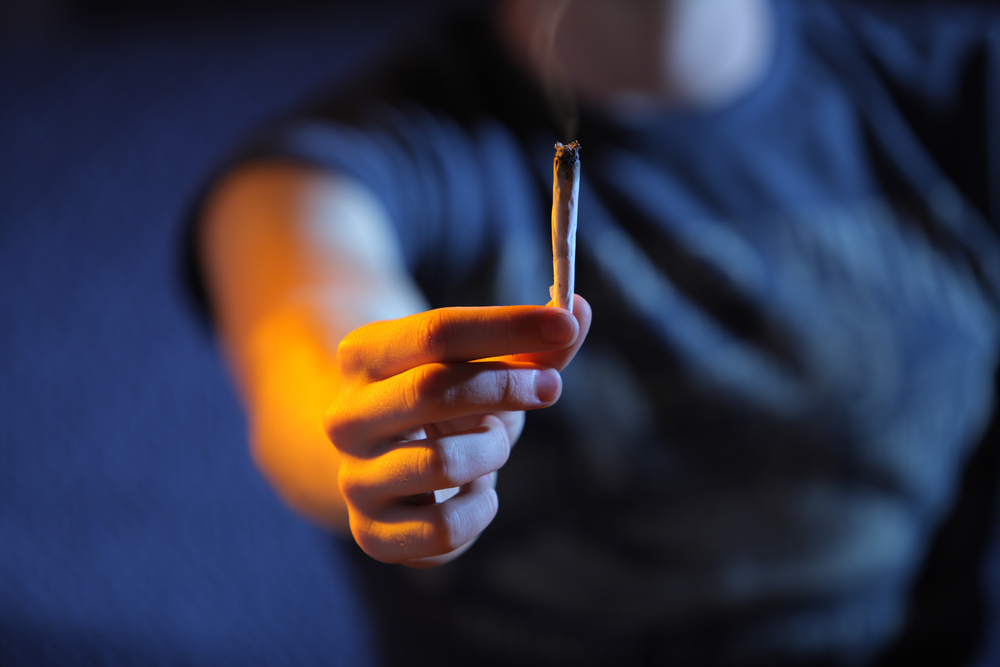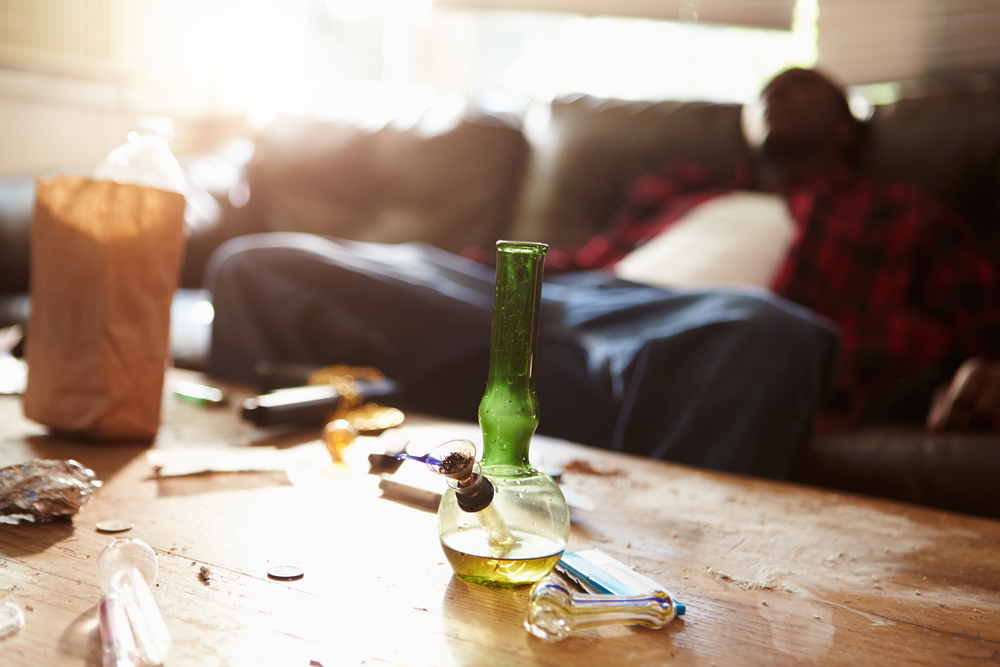Marijuana Addiction Treatment in Tacoma, WA
So you’ve been smoking weed for a while now, and things are starting to feel out of control. Maybe your friends and family have started commenting on how much you’re smoking and how it’s impacting your life. Marijuana may be legal in some states, but it can be highly addictive, especially when used long-term or in high doses. While you can’t fatally overdose on weed, you can develop a cannabis use disorder.
If you’ve tried to quit but can’t, experience withdrawal symptoms, or if weed is causing problems in your relationships or daily activities, it may be time to consider marijuana rehab. The good news is, that there are marijuana drug rehab centers in Tacoma, WA available to help you get back to living a healthy, balanced life without relying on being stoned all the time.

What is Marijuana?
Marijuana comes from the cannabis plant and contains THC, which makes you feel high. Many people use marijuana recreationally, but it can be addictive and lead to health issues.
- Marijuana use disorder is real and about 30% of users may develop an addiction.
- In 2020, marijuana smoking contributes to over 49 million people, which is nearly 18% of Americans aged 12 or older. During the same year, 5.1% (or 14.2 million people) of individuals aged 12 and older experienced a marijuana use disorder, also known as marijuana addiction.
- As of September 2022, the Substance Abuse and Mental Health Services Administration (SAMHSA) has reported an increase in marijuana use across all adult age groups, genders, and pregnant women. Among these marijuana users, people aged 18-25 have the highest rates of marijuana use.
- Marijuana overdoses are rare but high doses of THC can cause anxiety, paranoia, and hallucinations. Long-term use is linked to breathing problems, increased heart rate, and even psychosis.
- Teens who use marijuana regularly often struggle in school and are less likely to graduate. Their memory, learning, decision-making, and cognition can be impaired.
- Marijuana addiction treatment options include therapy, support groups, and rehabilitation centers. Medications are being developed to help with withdrawal symptoms and reduce cravings.
If marijuana negatively impacts your life or a loved one’s life, don’t lose hope. There are caring professionals and marijuana addiction treatment programs in Tacoma, WA to help people recover and stay committed to a productive life without relying on marijuana.
How Does Marijuana Addiction Develop?
Marijuana may seem harmless, but for some, casual toking can turn into a cannabis use disorder. How? The main culprit is THC, the chemical in weed that makes you high. When you smoke, THC floods your brain and activates its reward system, giving you a rush of pleasure and relaxation. Over time, your brain adapts to the THC, so you need more to get the same effect. This can lead to dependence, where you feel like you need weed just to feel normal.
Like other forms of addiction, the development of marijuana addiction is complex and can involve various factors, including biological, psychological, and environmental elements.
Genetics plays a significant role in determining an individual’s susceptibility to addiction. Some people may be more prone to developing marijuana abuse due to their genetic makeup. Additionally, repeated use can lead to changes in the brain’s structure and function, making it more difficult for individuals to quit or control their use.
Mental health issues, such as stress, anxiety, and depression, can contribute to marijuana addiction. People may turn to marijuana as a way to self-medicate or cope with these psychological challenges. Moreover, factors like low self-esteem, impulsivity, and poor coping skills can also increase the likelihood of developing a marijuana abuse.
The environment in which an individual lives can significantly impact the development of marijuana addiction. Exposure to drug use within the family or among friends, easy access to marijuana, and socio-economic conditions can all play a role in shaping an individual’s relationship with the drug. Social norms, cultural attitudes, and the legal status of marijuana can also contribute to its use and the development of addiction.
Understanding that marijuana addiction is influenced by a combination of these factors can help in developing tailored prevention and intervention strategies. Early education, promoting healthy coping mechanisms, and addressing mental health issues are some of the ways to mitigate the risk of developing a marijuana abuse.
The Effects of Marijuana Use

When marijuana is consumed, the onset of its effects can vary depending on the individual’s tolerance, the method of consumption, and the dosage. Here are some of the most common effects:
Euphoria and Relaxation
One of the most well-known effects of marijuana is a sense of euphoria or a “high.” It can induce feelings of relaxation, happiness, and an overall sense of well-being.
Altered Perception and Sensory Enhancement
Marijuana can alter perception and heighten sensory experiences. Colors may appear more vibrant, sounds may be more distinct, and tastes may be enhanced.
Increased Appetite
Often referred to as the “munchies,” marijuana can stimulate appetite and increase food cravings. This can be beneficial for individuals with medical conditions that cause a loss of appetite.
Cognitive Effects
Marijuana can affect cognitive functions, including short-term memory, attention, and decision-making abilities. It may impair concentration and coordination, making tasks requiring focus or fine motor skills more challenging.
Relaxation of Muscles
Marijuana has muscle-relaxing properties and may provide relief from muscle tension or spasms. This effect can be particularly beneficial for individuals with certain medical conditions, such as multiple sclerosis or chronic pain.
Pain Relief
Medical marijuana is commonly used for its analgesic properties. It can help alleviate various types of pain, including chronic pain, neuropathic pain, and pain associated with inflammatory conditions.
Reduced Anxiety and Stress
Some individuals report that marijuana can temporarily reduce feelings of anxiety and stress. However, it’s important to note that this can vary from person to person, and high doses or certain strains may actually increase anxiety in some individuals.
Potential Side Effects
While marijuana is generally considered safe for most people, it can also have side effects such as dry mouth, red eyes, increased heart rate, impaired coordination, and in rare cases, feelings of paranoia or panic.
Can You Overdose on Marijuana?
The short answer is yes, you can overdose on marijuana, though fatal overdoses are extremely rare. Consuming too much THC, the main psychoactive compound in marijuana, can lead to severe side effects and, in rare cases, require emergency medical attention. The risk is higher for cannabis plant edibles, concentrates, and synthetic cannabinoids.
If you experience severe or long-lasting side effects from marijuana, seek medical help or marijuana addiction treatment immediately. Moderation and education are key to using marijuana responsibly and avoiding potential harm. The following are some possible outcomes.
- Anxiety
- Paranoia
- Fear
- Nausea
- Vomiting
- Stomach pain
- Hallucinations
- Delusions
- Loss of sense of personality Identity
- Sedation
- Low blood pressure
- Breathing Difficulties
What are the Signs and Symptoms of Marijuana Use Disorder?
If you or someone you know is struggling with marijuana use, several symptoms could indicate it’s time to get marijuana addiction treatment.
- Difficulty limiting the amount of marijuana used. Using more than intended or for longer than planned.
- Spending a lot of time obtaining and using marijuana. Missing work, school, or social activities because of marijuana use.
- Continuing to use marijuana even though it causes problems in relationships or daily activities.
- Giving up or cutting up on significant activities due to marijuana use.
- Using marijuana in dangerous situations like while driving.
- Marijuana tolerance has increased. Needing to use more marijuana to get the desired effect.
- Withdrawal symptoms when not using marijuana. Irritability, restlessness, difficulty sleeping, and decreased appetite are common.
- Strong cravings and urges to use marijuana. Difficulty controlling the impulse to use marijuana.
- Continuing to use marijuana despite physical or psychological problems caused or worsened by it.
Don’t hesitate to speak to a medical professional about appropriate marijuana addiction treatment if you are experiencing several of these signs. Your doctor can recommend a marijuana rehab center that best suits your needs and preferences.

Is Marijuana Withdrawal Real?
Yes, marijuana withdrawal is real. Long-term marijuana use leads to changes in the brain that can cause withdrawal symptoms when someone stops using it. While not everyone who uses marijuana will experience withdrawal symptoms, some individuals may.
After stopping using marijuana, symptoms of withdrawal usually start within a few days to a week and can persist for several weeks. The severity and duration of withdrawal symptoms can vary depending on factors such as the frequency and duration of marijuana use, the potency of the product, and the individual’s unique physiology.
Common symptoms of marijuana withdrawal include:
- Insomnia, restlessness, and strange dreams are common. Marijuana disrupts your sleep-wake cycle, so stopping can lead to sleep difficulties.
- Irritability, anger, and mood changes often occur. Marijuana impacts the parts of the brain involved in emotional regulation and mood.
- Loss of appetite and weight loss are frequently reported. Marijuana activates the endocannabinoid system involved in appetite regulation.
- Craving marijuana is one of the hallmark symptoms. Cravings can be intense, especially in the first week after quitting.
- Sweating, fever, chills, and stomach problems may arise for some. Marijuana withdrawal can cause a variety of physical discomforts as your body adjusts.
Marijuana Addiction Treatment and Rehab Options
If you or someone you know is struggling with marijuana drug abuse, there are marijuana addiction treatment options available. Bayview Recovery Center in Washington State offers proven outpatient treatment programs to help individuals overcome their marijuana use disorder.
Outpatient rehab for marijuana or other drugs allows individuals to remain in their own homes while still attending therapy sessions at treatment facilities. This option offers more flexibility but less supervision. Outpatient rehab typically involves both group and individual therapy sessions a few times a week for several months.

A partial hospitalization program (PHP) can be an appropriate marijuana addiction treatment option for individuals with marijuana use disorder who require intensive care but do not need 24-hour supervision in an inpatient setting. A PHP provides structured and comprehensive treatment while allowing individuals to return home or to a supportive living environment during non-treatment hours.
For individuals who need a structured degree of care but not the intensity of a partial hospitalization or inpatient program, an intensive outpatient program (IOP) may be a suitable treatment option.IOPs allows an individual in recovery to live at home and carry on with their regular activities while providing the same therapy modalities and advantages as other marijuana addiction treatment choices.
Therapy, such as cognitive behavioral therapy (CBT) and and motivational enhancement therapy, is commonly used to change unhealthy thoughts and behavior patterns related to marijuana use. Therapy can help address the underlying causes of addiction and give people skills to avoid relapse.
Support groups, like Marijuana Anonymous, provide ongoing support and accountability. Connecting with others struggling with similar issues can help with recovery.
Get Help at Bayview Recovery Center
Treating marijuana addiction or any other substance is challenging, but with professional help and a commitment to sobriety, people can break free from addiction and maintain long-term recovery. The path is not easy, but a life free from marijuana addiction is absolutely worth the effort. Get all this help at Bayview Recovery and embrace a healthier, more fulfilling life free from the grip of marijuana addiction! Contact us today!
“The staff at the center has been remarkable in their care for our loved one. Tuni was with us the whole way as we tried to get this person into treatment. They continue to assist us as the process continues. Great work!”
Ray O
“I have been trying to get sober the past 3 years and I have been to treatment 5 times. Bayview Recovery was my 6th time. They helped me get to 142 days sober! I was a handful hot mess when I got there but the team never gave up on me. They work with families and they truly care about them too. Bayview house’s are clean and comfortable and the staff is amazing. They plan for fun events weekly and they want you to have fun. If your looking for something different call them it will save your LIFE!”
Cindy J
“Bayview is dedicated to providing clients the healthiest environment to develop a solid foundation in their recovery. The therapists and medical team are devoted to ensure clients have the best individualized care. I highly recommend Bayview for anyone seeking a highly professional treatment program. The care and compassion given to clients is remarkable.”
Robin M
“This is a fantastic facility with outstanding staff. If you or a loved one is struggling this is a great program to start the journey of recovery and get life long skills and relationships to begin a new life!”
Garrett T
“Just picked up our daughter after 90 days at Bayview Recovery. Loved the staff and facility, do not know what the future holds ???????? but while at Bayview , always felt informed. Highly recommend, incredibly helpful especially at the very beginning when we were so helpless and needed help the most – God Bless.”
Rosie S
Dave Cundiff, MD, MPH is an experienced leader in the field of Substance Use Disorder treatment. He works with patients suffering from Substance Use Disorder to evaluate their medication needs and prescribe treatments accordingly. In addition, he regularly participates in all-staff debriefing sessions involving peers, nurses, and other prescribers. He also reviews and advises on policies, procedures, and techniques for treating substance use disorder.




